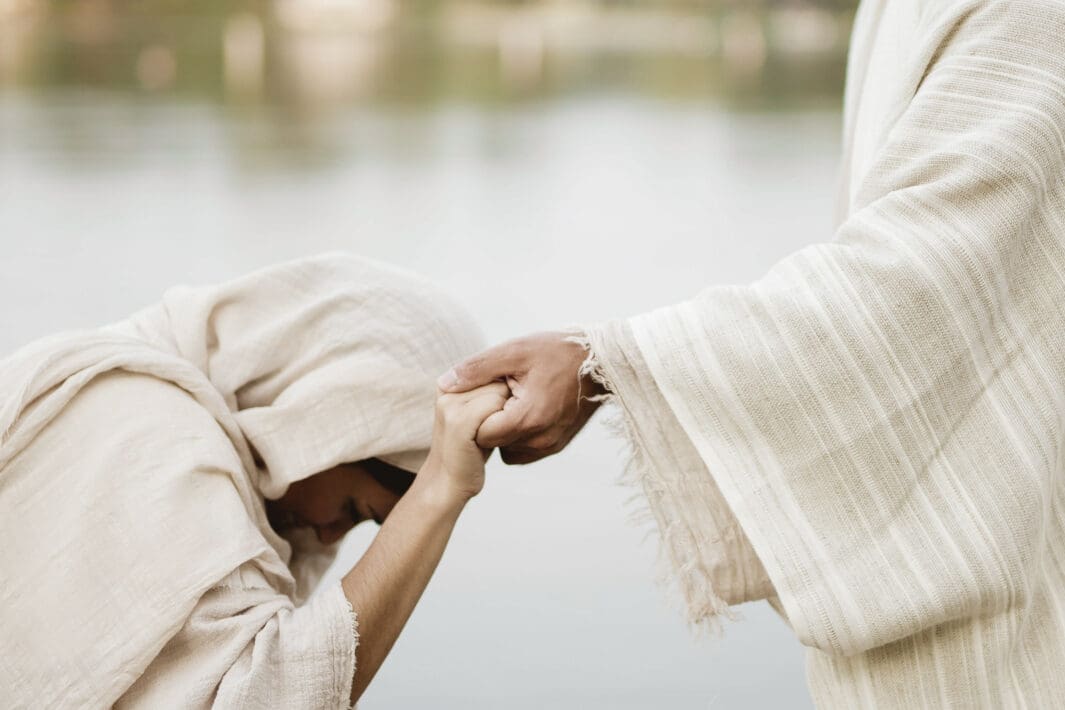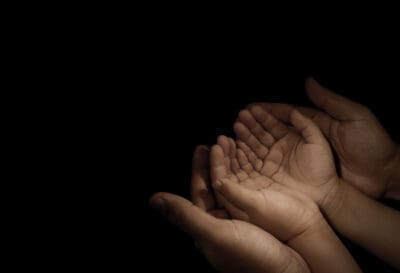
A healthy masculinity reflects Jesus’ treatment of women: giving them respect, attention, compassion, and honoring them with responsibility and purity.
These are only preliminary, unedited outlines and may differ from Andy’s final message.
I. Christ’s Key Masculine Roles
· Servant
· Warrior
· Prophet
· Provider
· Protector
· King
· Healer
· Counselor
· Judge
· Leader
· Builder
· Priest
II. Christ’s Key Masculine Traits
· Courage
· Strength
· Initiative
· Wisdom
· Truthfulness
· Gentleness
· Generosity
· Self-Control
· Self-Denial
· Humility
· Obedience
· Compassion
· Justice
· Faithfulness
· Holiness
· Piety
· Skill
· Diligence
III. Matching Them Up
· Servant: Humble, Self-Denying, Faithful
· Warrior: Strong, Courageous, Self-Controlled, Just
· Leader: Wise, Purposeful, Initiating, Goal-oriented
· Healer: Compassionate, Gentle, Wise
· Prophet: Truthful, Fearless, Pious, Holy, Faithful
· Provider: Generous, Self-Denying, Wise
· Protector: Strong, Courageous, Faithful
· King: Just, Wise, Compassionate, Strong, Initiating
· Counselor: Wise, Truthful, Holy, Pious, Compassionate
· Judge: Just, Wise, Faithful, Compassionate, Pious
· Builder: Faithful, Wise, Diligent, Skillful
· Priest: Holy, Pious, Faithful
IV. The Problem Stated, and Its Resolution by Jesus
Some modern-day people (including some feminists) cast slurs on Christianity as hostile to women, denigrating them, belittling them, marginalizing, or even abusing them.
Certainly “toxic masculinity” and the despised “patriarchy” are seen by such folks as essentially abusive to women.
A healthy masculinity must include a clear understanding of how Jesus treated women. He esteemed them as worthy of his full attention, he listened to them, taught them, reasoned with them, healed them, respected them, honored them, entrusted them with responsibility, received service from them, accepted worship from them, was deeply compassionate toward them, and treated them with perfect purity.
However, he did not idealize them or ignore their sinfulness or need of salvation. And he did not establish them in authority over men—he did not choose any of them to be an apostle.
Biblical masculinity should imitate Jesus’ treatment of women.
V. Biblical Data: Jesus and Women
· Some women listed
o Mary, his mother
o Peter’s mother-in-law
o The Samaritan woman at the well
o The widow of Nain
o The woman caught in adultery
o The woman with the bleeding problem
o The hunchbacked woman
o The daughter of Jairus
o The Syrophoenician woman and her demon-possessed daughter
o Martha and Mary of Bethany
o The woman who supported Jesus financially
o The mother of James and John
o The women who saw his burial
o Mary Magdalene
· Quick summaries
o Provision
§ Entrusted care for his mother to John while he was on the cross
o Limiting (his mother’s influence; all women from being leaders)
§ Resisted his mother’s initiative at the wedding in Cana: “Dear woman, why do you involve me?”
§ Said “Who is my mother? Who are my brothers?”
o Protecting, defending
§ Mary’s lavish gift… “Why are you bothering her… she has done a beautiful thing for me!”
§ The sinful woman at the Pharisee’s house: Jesus defended her publicly
o Graciously forgiving
§ The woman caught in adultery
§ The sinful woman at the Pharisee’s house
§ The Samaritan woman
o Healing
§ Peter’s mother-in-law, sick in bed with a fever
§ Jairus’s daughter
§ The hunchbacked woman
§ The widow at Nain’s dead son
o Evangelizing
§ The Samaritan woman
o Teaching (treating their minds and souls as worthy)
§ Martha and Mary: “Mary has chosen the better portion, and it will not be taken from her”
§ The Samaritan woman
o Deep compassion and tenderness
§ The widow and Nain: “Don’t cry”
§ The hunchbacked woman: “Whom Satan has kept bound for eighteen long years”
§ Martha and Mary, before raising Lazarus from the dead: “Jesus was deeply moved in spirit and troubled.”
o Testing
§ The Syrophoenician woman: “It’s not right to take the children’s bread and toss it to their dogs.”
o Holy love
§ Jesus loved Martha, and Mary (John 11)
o Accepting service
§ The women who supported Jesus financially: Joanna, Susanna, others (Luke 8)
o Accepting worship
§ Mary of Bethany’s expensive gift was worship
§ Mary Magdalene fell to his feet and worshiped him
§ So did all the other women at the tomb (Mt. 28:9)
o Honoring and celebrating
§ The widow’s two copper coins: “She has put in more than all the others”
§ The hunchbacked woman: “She is a daughter of Abraham.”
§ Mary’s lavish gift: “What she has done will also be told in memory of her.”
o Tenderly interacting, building relationship
§ The woman with the bleeding problem: “Who touched me? Go in peace and be freed from your suffering.”
o Entrusting responsibility
§ Had Mary Magdalene and the other women tell the apostles that Christ had risen from the dead
· Some of My Favorite Accounts of Jesus and Women
o The Samaritan Woman
John 4:10-15 Jesus answered her, “If you knew the gift of God and who it is that asks you for a drink, you would have asked him and he would have given you living water.” 11 “Sir,” the woman said, “you have nothing to draw with and the well is deep. Where can you get this living water? 12 Are you greater than our father Jacob, who gave us the well and drank from it himself, as did also his sons and his flocks and herds?” 13 Jesus answered, “Everyone who drinks this water will be thirsty again, 14 but whoever drinks the water I give him will never thirst. Indeed, the water I give him will become in him a spring of water welling up to eternal life.” 15 The woman said to him, “Sir, give me this water so that I won’t get thirsty and have to keep coming here to draw water.”
o Mary’s Lavish Gift
Mark 14:3-9 While he was in Bethany, reclining at the table in the home of a man known as Simon the Leper, a woman came with an alabaster jar of very expensive perfume, made of pure nard. She broke the jar and poured the perfume on his head. 4 Some of those present were saying indignantly to one another, “Why this waste of perfume? 5 It could have been sold for more than a year’s wages and the money given to the poor.” And they rebuked her harshly. 6 “Leave her alone,” said Jesus. “Why are you bothering her? She has done a beautiful thing to me. 7 The poor you will always have with you, and you can help them any time you want. But you will not always have me. 8 She did what she could. She poured perfume on my body beforehand to prepare for my burial. 9 I tell you the truth, wherever the gospel is preached throughout the world, what she has done will also be told, in memory of her.”
o Martha and Mary
Luke 10:38-42 As Jesus and his disciples were on their way, he came to a village where a woman named Martha opened her home to him. 39 She had a sister called Mary, who sat at the Lord’s feet listening to what he said. 40 But Martha was distracted by all the preparations that had to be made. She came to him and asked, “Lord, don’t you care that my sister has left me to do the work by myself? Tell her to help me!” 41 “Martha, Martha,” the Lord answered, “you are worried and upset about many things, 42 but only one thing is needed. Mary has chosen what is better, and it will not be taken away from her.”
o The Widow at Nain
Luke 7:11-17 Soon afterward, Jesus went to a town called Nain, and his disciples and a large crowd went along with him. 12 As he approached the town gate, a dead person was being carried out– the only son of his mother, and she was a widow. And a large crowd from the town was with her. 13 When the Lord saw her, his heart went out to her and he said, “Don’t cry.” 14 Then he went up and touched the coffin, and those carrying it stood still. He said, “Young man, I say to you, get up!” 15 The dead man sat up and began to talk, and Jesus gave him back to his mother. 16 They were all filled with awe and praised God. “A great prophet has appeared among us,” they said. “God has come to help his people.” 17 This news about Jesus spread throughout Judea and the surrounding country.
o The Sinful Woman
Luke 7:36-50 Now one of the Pharisees invited Jesus to have dinner with him, so he went to the Pharisee’s house and reclined at the table. 37 When a woman who had lived a sinful life in that town learned that Jesus was eating at the Pharisee’s house, she brought an alabaster jar of perfume, 38 and as she stood behind him at his feet weeping, she began to wet his feet with her tears. Then she wiped them with her hair, kissed them and poured perfume on them. 39 When the Pharisee who had invited him saw this, he said to himself, “If this man were a prophet, he would know who is touching him and what kind of woman she is– that she is a sinner.” 40 Jesus answered him, “Simon, I have something to tell you.” “Tell me, teacher,” he said. 41 “Two men owed money to a certain moneylender. One owed him five hundred denarii, and the other fifty. 42 Neither of them had the money to pay him back, so he canceled the debts of both. Now which of them will love him more?” 43 Simon replied, “I suppose the one who had the bigger debt canceled.” “You have judged correctly,” Jesus said. 44 Then he turned toward the woman and said to Simon, “Do you see this woman? I came into your house. You did not give me any water for my feet, but she wet my feet with her tears and wiped them with her hair. 45 You did not give me a kiss, but this woman, from the time I entered, has not stopped kissing my feet. 46 You did not put oil on my head, but she has poured perfume on my feet. 47 Therefore, I tell you, her many sins have been forgiven– for she loved much. But he who has been forgiven little loves little.” 48 Then Jesus said to her, “Your sins are forgiven.” 49 The other guests began to say among themselves, “Who is this who even forgives sins?” 50 Jesus said to the woman, “Your faith has saved you; go in peace.”
o The Bleeding Woman
Mark 5:24-34 So Jesus went with him. A large crowd followed and pressed around him. 25 And a woman was there who had been subject to bleeding for twelve years. 26 She had suffered a great deal under the care of many doctors and had spent all she had, yet instead of getting better she grew worse. 27 When she heard about Jesus, she came up behind him in the crowd and touched his cloak, 28 because she thought, “If I just touch his clothes, I will be healed.” 29 Immediately her bleeding stopped and she felt in her body that she was freed from her suffering. 30 At once Jesus realized that power had gone out from him. He turned around in the crowd and asked, “Who touched my clothes?” 31 “You see the people crowding against you,” his disciples answered, “and yet you can ask, ‘Who touched me?'” 32 But Jesus kept looking around to see who had done it. 33 Then the woman, knowing what had happened to her, came and fell at his feet and, trembling with fear, told him the whole truth. 34 He said to her, “Daughter, your faith has healed you. Go in peace and be freed from your suffering.”
o The Widow’s Copper Coins
Mark 12:41-44 Jesus sat down opposite the place where the offerings were put and watched the crowd putting their money into the temple treasury. Many rich people threw in large amounts. 42 But a poor widow came and put in two very small copper coins, worth only a fraction of a penny. 43 Calling his disciples to him, Jesus said, “I tell you the truth, this poor widow has put more into the treasury than all the others. 44 They all gave out of their wealth; but she, out of her poverty, put in everything– all she had to live on.”
o Mary Magdalene at the Empty Tomb
John 20:11-18 Mary stood outside the tomb crying. As she wept, she bent over to look into the tomb 12 and saw two angels in white, seated where Jesus’ body had been, one at the head and the other at the foot. 13 They asked her, “Woman, why are you crying?” “They have taken my Lord away,” she said, “and I don’t know where they have put him.” 14 At this, she turned around and saw Jesus standing there, but she did not realize that it was Jesus. 15 “Woman,” he said, “why are you crying? Who is it you are looking for?” Thinking he was the gardener, she said, “Sir, if you have carried him away, tell me where you have put him, and I will get him.” 16 Jesus said to her, “Mary.” She turned toward him and cried out in Aramaic, “Rabboni!” (which means Teacher). 17 Jesus said, “Do not hold on to me, for I have not yet returned to the Father. Go instead to my brothers and tell them, ‘I am returning to my Father and your Father, to my God and your God.'” 18 Mary Magdalene went to the disciples with the news: “I have seen the Lord!” And she told them that he had said these things to her.
Summary Lessons for Biblical Manhood:
Christian men should treat women the way Jesus did, with overwhelming dignity and respect, compassion and holy love. They should respect their minds and souls, make them feel protected and provided for, use their gifts fully, give them important responsibilities, seek loving friendships with them, and worship and serve Christ with them as co-heirs of the gracious gift of eternal life.
None of this in any way overturns gender-based roles in the home and the church. Rather, it shows how complementarianism flourishes best.






